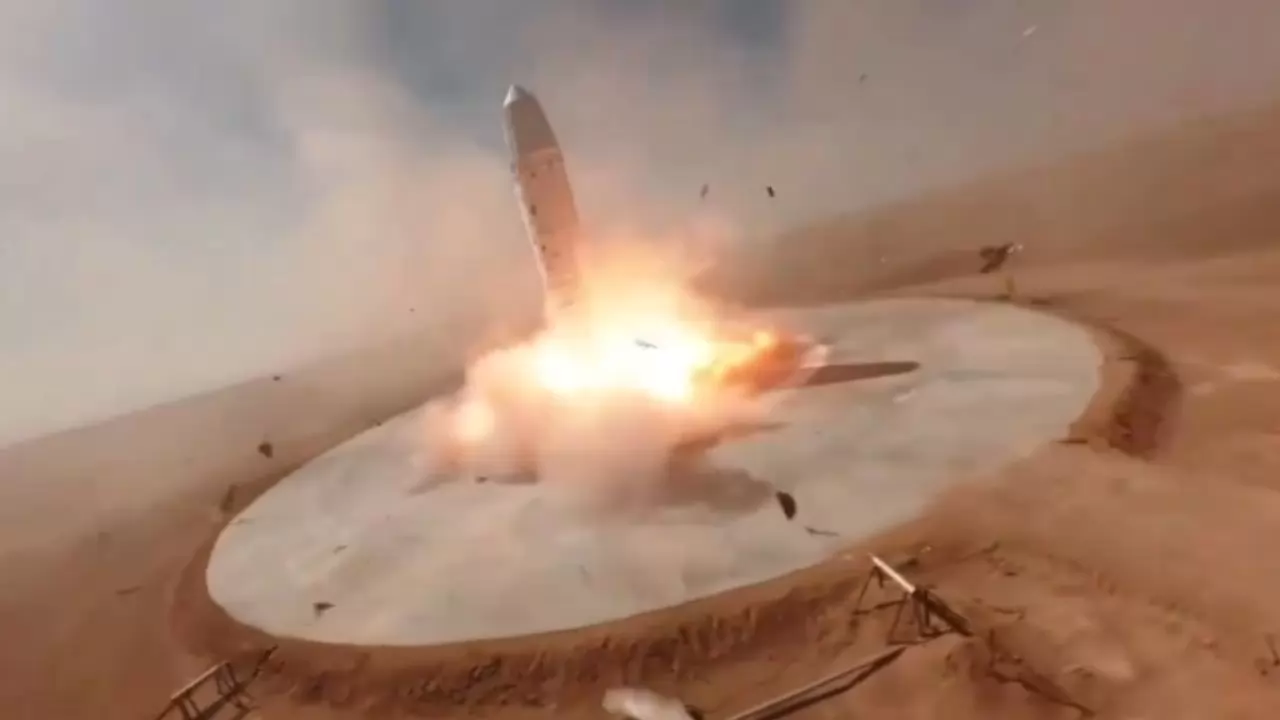
Chinese rocket blasts (X/MarioNawfal)
A rocket test by the Chinese startup Deep Blue Aerospace ended in a spectacular failure when its Nebula-1 rocket exploded while attempting a vertical landing. The incident, which unfolded during a high-altitude recovery test flight, was fully captured by drone footage and has since garnered significant attention online.
Launched on Sunday, the Nebula-1 rocket successfully ascended to approximately five kilometers before encountering an anomaly during its landing phase at the Ejin Banner Spaceport in Inner Mongolia. Unfortunately, the rocket misjudged its landing altitude, leading to a premature engine shutdown. As a result, Nebula-1 remained upright until it slammed into the landing pad, erupting in flames.
🇨🇳CHINESE ROCKET TEST ENDS IN EXPLOSION, CAPTURED ON DRONE
— Mario Nawfal (@MarioNawfal) September 24, 2024
A rocket test by private Chinese startup Deep Blue Aerospace ended in failure when the Nebula-1 collapsed and exploded during landing.
The entire flight was captured by drone. The data will be used to improve the next… pic.twitter.com/I6MmYa98ps
Deep Blue Aerospace described the test mission as "not completely successful," noting that out of 11 major test verification tasks, 10 were successfully completed while one was not. The company plans to use the data collected from this flight to enhance the next test flight scheduled for November.
The two-minute cinematic video showcases breathtaking views of the rocket's ascent, followed by the dramatic explosion upon landing. This incident has drawn comparisons to SpaceX's own test flights, where similar explosions were regarded as learning opportunities.
Nebula-1, measuring 11 feet in width, is designed to carry payloads of up to 2,000 kilograms to low Earth orbit, with future versions expected to lift up to 8,000 kilograms. In contrast, SpaceX's Falcon 9 rocket boasts a payload capacity of about 25 metric tonnes, while the Falcon Heavy can carry around 64 metric tonnes.
With the Chinese government encouraging investment in spaceflight ventures, Deep Blue Aerospace is one of several startups aiming to follow in SpaceX's footsteps in developing reusable rocket technology. As interest in space exploration continues to grow, such test flights will play a crucial role in advancing capabilities and ensuring future success in the competitive aerospace industry.





Copyright © 2026 Top Indian News
